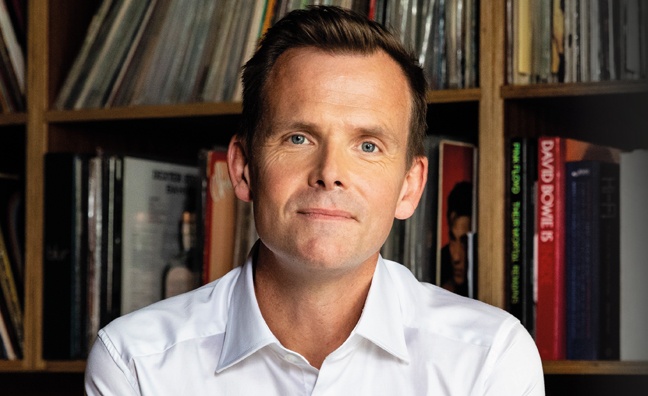Ivors Academy CEO Graham Davies has shared his hopes for streaming remuneration reform following positive noises from the majors on the issue.
Universal Music Group CEO and chairman Sir Lucian Grainge confirmed his support for a fresh approach to streaming royalties in January. “What’s become clear to us and to so many artists and songwriters – developing and established ones alike – is that the economic model for streaming needs to evolve,” he said as part of his traditional New Year message to UMG employees.
Last month, meanwhile, Warner Music Group chief Robert Kyncl told Morgan Stanley’s Media And Telecom conference that it is up to the whole industry to “figure out a new model that drives the value of music up”.
Speaking in the May issue of Music Week, Davies said he was encouraged by the comments, which he considered to be testament to the work of the DCMS Committee and movements such as the Ivors' Fix Streaming campaign.
“It's great to hear Universal and Warner talking about remuneration reforms,” he said. “Ultimately, what we're looking for is for the value of those rights to be higher.
"We would like the industry to continue to advocate for getting a better share for the publishing. It's very important to say, we love publishing. Publishers have been partners of songwriters forever and it can be a really effective partnership. A big chunk of any royalties paid through publishing goes through to the songwriter, so what we would like is more money to go to the publishing rights, because that will flow through, all things being equal.”
We will keep campaigning so long as there are problems – whether long standing or new issues – that need reform
Graham Davies, Ivors Academy
The Ivors Academy’s campaigning has extended to its Composers Against Buyout initiative with the Musicians’ Union, and Credits Due with ABBA’s Bjorn Ulvaeus’ Music Rights Awareness Foundation (MRAF). The purpose of Credits Due, which was launched by Ulvaeus at the 2021 Ivor Novello Awards, is to increase knowledge and awareness about the importance of having the correct metadata attached to recordings.
“Lots of these campaigns are raising issues that have been around for a long time,” said Davies. “I hope we will effect some reform to mean that some of them can maybe change tack, but I think we will keep campaigning so long as there are problems – whether long standing or new issues – that need reform."
He continued: "We feel that the fair sharing of proceeds needs to improve. That is where we started – that songwriters should get a better deal from streaming – and we still feel the same. We need a transparency code to ensure that the key information is there so songwriters and their representatives can understand whether they are getting what they should.
“These things feed into the question of whether songwriters are being valued and being paid properly. Our view is that there is reform that still needs to happen.”
At the moment, we know there's a big problem. But we don't know specifically what it is
Graham Davies, Ivors Academy
Davies also addressed the scale of royalties not being paid or misdirected.
"We did our best [a couple of years ago] to add up what we thought the global, unallocated money was for publishing on streams, and we estimated that it was half a billion pounds a year," he said. "It was something of a desk-based estimate and we deliberately sought to be conservative with some of the calculations.
"I think it has to be considered that it's a much higher number. But it will be great to know because I think that, once you start to measure these things, you're able to better manage what needs to happen."
He added: "The Credits Due campaign is saying that we know the vast majority of recordings uploaded to DSPs are lacking the identifier for the song, so it's not a surprise that royalties are not going to be accurately distributed on the back of that. What we don't have is the scale of it. At the moment, we know there's a big problem. But we don't know specifically what it is.”
In February 2021, Davies appeared before MPs as part of the DCMS Committee inquiry into the economics of streaming, and was heartened by the subsequent report, which made several recommendations in line with the trade body’s reform agenda for the industry.
"I think it achieved a huge amount," he said. “Discussion is good, but action is better – and we need something tangible, of course – but you have to start with catching up on an opening out of issues that had not seen the light of day as they should have done.
“I don't think there's anyone that has either participated in [the inquiry], or has watched it, who hasn't felt that we've all learned an awful lot from it."
Subscribers can read the full interview here.









